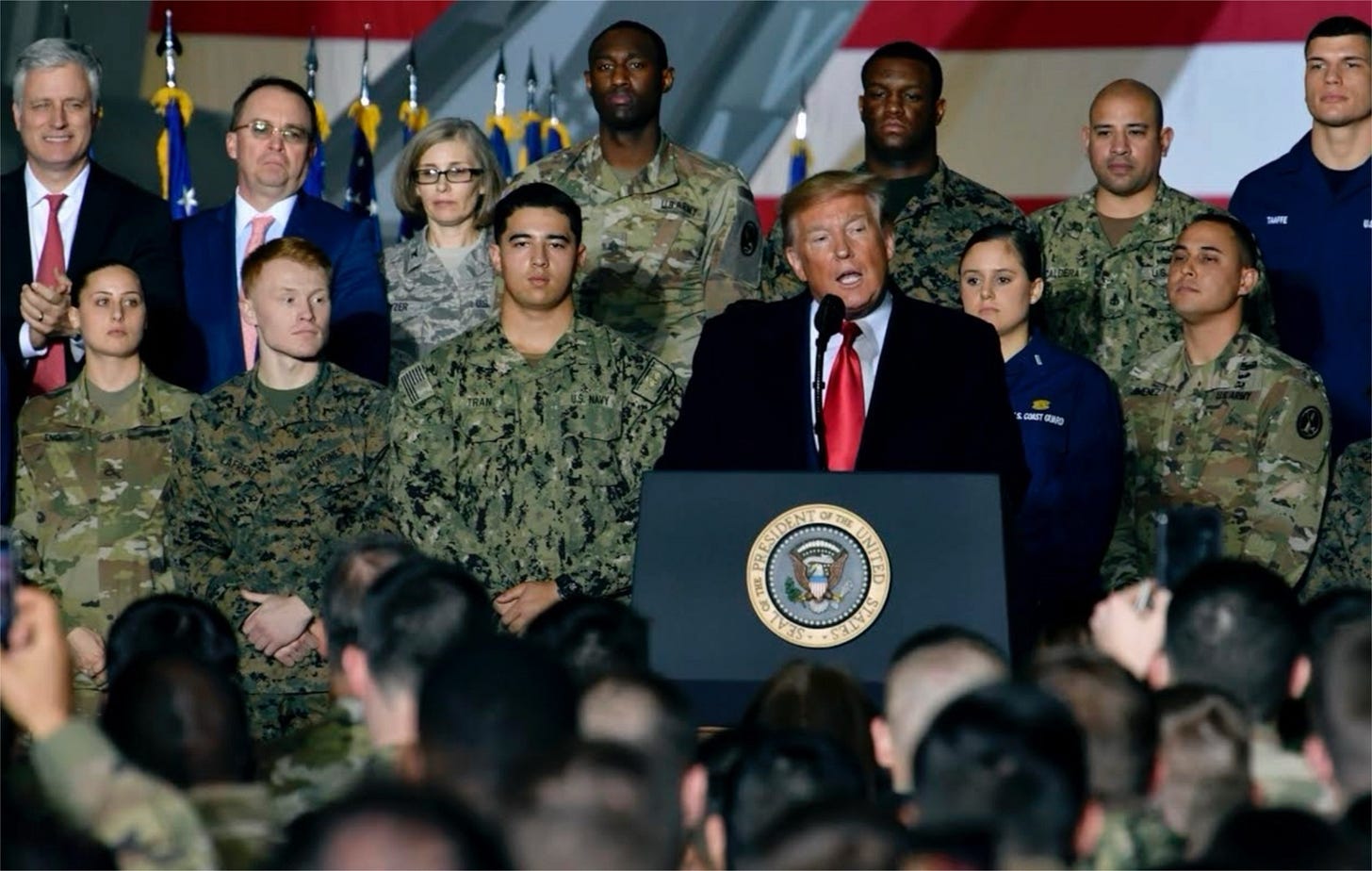Trump Demands Arrests of Democrats Over Military Order Guidance
A Constitutional Clash Over Command Authority and Lawful Resistance
The nation finds itself at another constitutional crossroads as President Donald Trump has called for the arrest of Democratic lawmakers who have publicly encouraged military service members to resist orders they deem unlawful. The controversy centers on a fundamental tension in military law: the obligation to follow orders versus the duty to refuse illegal commands.
The dispute erupted after several Democratic members of Congress issued statements reminding troops that they are bound by the Uniform Code of Military Justice to disobey unlawful orders. These lawmakers referenced concerns about potential misuse of military force for domestic purposes, citing the Posse Comitatus Act and established military doctrine that requires service members to exercise moral judgment.
Trump has characterized these statements as seditious and has demanded that the Justice Department pursue charges against those encouraging what he frames as military insubordination. “These radical Democrats are trying to undermine the chain of command and destroy military discipline,” Trump stated, calling the guidance “a direct attack on presidential authority.”
Legal experts note that military law explicitly requires service members to refuse illegal orders. The Manual for Courts-Martial makes clear that “obedience to orders” is not a defense for criminal conduct. This principle was established at Nuremberg and reinforced in cases like the My Lai massacre trials. Officers and enlisted personnel alike swear an oath to the Constitution, not to any individual leader.
Democratic lawmakers have defended their statements as both constitutionally protected speech and a reminder of existing military law. “We’re not encouraging rebellion,” said one senior Democrat. “We’re reminding service members of their existing legal obligations under the UCMJ. That’s their duty, not insubordination.”
Constitutional scholars point out that arresting lawmakers for public statements about legal obligations would raise serious First Amendment concerns. Members of Congress enjoy broad speech protections under the Speech or Debate Clause, designed to prevent executive intimidation of the legislative branch.
The controversy reflects deeper anxieties about civilian-military relations and the potential deployment of troops for domestic law enforcement. Trump has previously suggested using military force to address protests, crime, and immigration enforcement—actions that could implicate Posse Comitatus restrictions on military involvement in civilian law enforcement.
Military leadership has remained largely silent on the dispute, though the Pentagon has consistently emphasized that all service members must follow lawful orders while refusing those that are clearly illegal. The military’s careful neutrality reflects its desire to avoid politicization while maintaining constitutional principles.
As this clash unfolds, it underscores the delicate balance between executive authority, legislative oversight, and the military’s duty to the Constitution. The resolution of this dispute may have lasting implications for civil-military relations and the boundaries of political speech in America’s increasingly polarized landscape.


